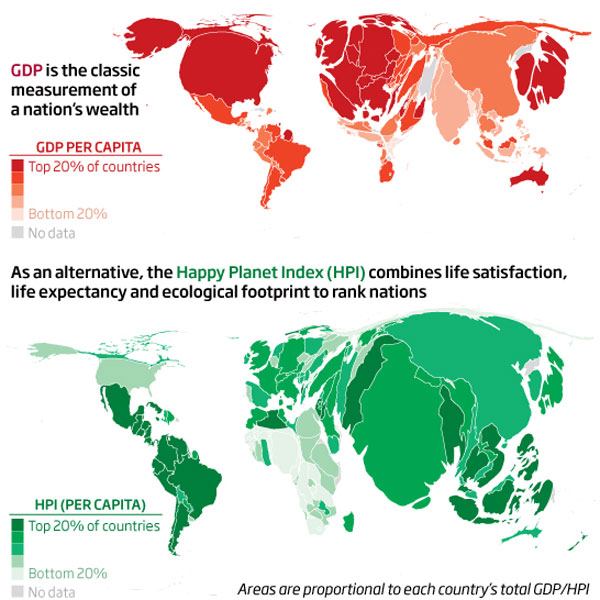The United States ranks supreme when measured by gross domestic product (GDP)—the value of all goods and services produced in the country in one year. Per capita, we’re second to the European Union. But a different national success measurement doesn’t have America anywhere near the top.
The Happy Planet Index (HPI) released its third annual report this week. HPI ranked 151 countries by their ability to deliver long and content lives (determined by survey) in conjunction with a reasonable ecological footprint—that is, providing food and other necessities for the average citizen while also absorbing that citizen’s ecological impact (including carbon emissions). It’s that last part of the measurement that pushed the United States to its 105-of-151 rank. Americans’ life expectancy is in the top 40 and our well-being is in the top 20, but an ecological footprint of 7.19 global hectares per capita placed the US only six spots from last place in that category.
This map from New Scientist visually compares countries’ rankings through distortion by GDP then by HPI.

GDP is the generally accepted measurement of national success, but several alternatives have been praised for their more comprehensive calculations. Including environmental cost within HPI make for a longer-term measure of success that takes into account the negative impacts of climate change and environmental destruction.














